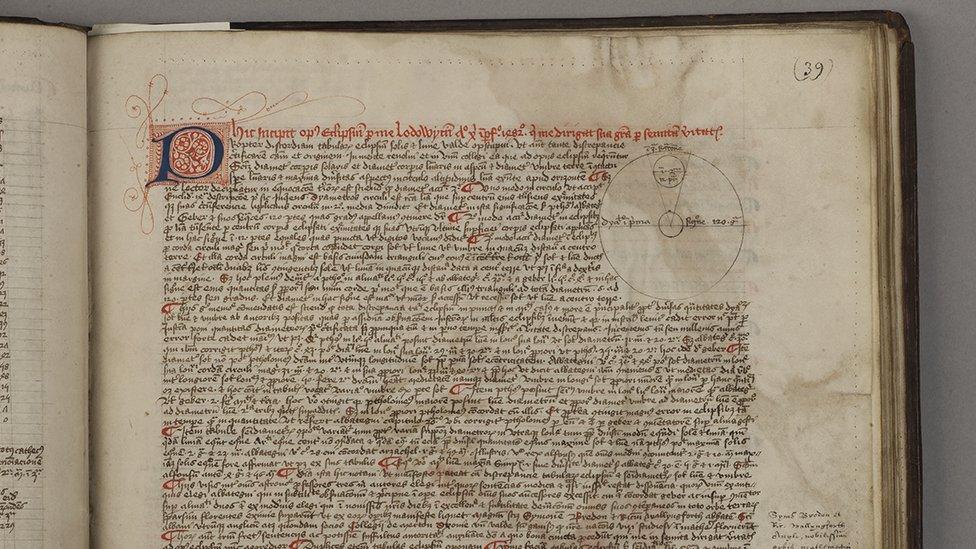Order to keep 15th Century Lewis of Caerleon manuscript in UK
- Published

The manuscript was completed by Welsh scientist Lewis of Caerleon
An order has been made to stop a 15th Century manuscript which sheds new light on medieval scientific knowledge being taken abroad.Мэ
The ВЈ300,000 manuscript was completed by Welsh scientist Lewis of Caerleon, a highly accomplished astronomer and personal physician to King Henry VII.
Culture Minister Caroline Dinenage has placed a temporary export bar on it and it will be offered to a UK buyer or institution.
It is said to be in good condition.
"This manuscript is an important part of the story of how ancient beliefs led to our modern scientific understanding of the world we live in," said Ms Dinenage.
"It is a remarkable piece by a Welsh scholar that would make an excellent contribution to the national collection.
"I hope a buyer can be found so we can keep this important work in the UK."В
The minister's decision follows the advice of the Reviewing Committee on the Export of Works of Art and Objects of Cultural Interest (RCEWA).
The committee noted the manuscript displayed the progression from ancient theories of astronomy toward a modern, mathematical approach.
They agreed that Lewis of Caerleon was a significant contributor to the study of astronomy and the development of science in the late medieval era.Мэ
"This beautifully written volume, still in its handsome original binding, was made for presentation, very possibly to Henry VII," said RCEWA committee member Peter Barber.
"It would be a great pity if this volume by an early Welsh scholar who deserves to be better known, with its links to courtly culture, with a distinguished provenance and with its immense research potential, were to be allowed to leave this country."
RCEWA made its recommendation on the grounds of the manuscript's outstanding significance to the study of medieval mathematical and scientific knowledge and for the Welsh contribution to the history of science in the British Isles.Мэ
- Published24 January 2020
- Published6 January 2020
- Published28 August 2016